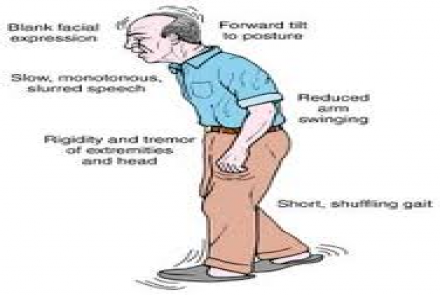
Persons with Parkinson's are not just affected by motor and cognitive behaviour symptoms but also emotional difficulties. Clinical Psychologist Shanaya D’souza and Health Psychologist Shibani Khanna explain the need and benefits of seeking counselling help for the mental health issues.
Parkinson’s disease is a progressive disorder which develops when the brain cells which produce the neurotransmitter dopamine begin to degenerate. Apart from the visible motor symptoms that make everyday functioning more difficult, there are various non motor symptoms as well, which often remain ignored. These include neuropsychiatric, cognitive and emotional difficulties like issues with memory, depression, anxiety etc.
Despite all the medical interventions, therapies, the skills involved in helping an individual deal with psychological difficulties, mental health issues are still considered a taboo. Visiting a mental health professional is still considered to be “abnormal” due to the stigma associated with the process. Many people avoid seeking help to deal with behavioral or mental health issues with the fear that they may be termed or labeled as ‘insane’ or ‘weak’. People also look for more immediate solutions to their problems, making the process of improving mental health through counseling an option that is often given up too soon.
Depression and anxiety are two of the most common mental health issues seen in People with Parkinson’s (PwPs).
Depression in Persons wth Parkinson's
Research shows that for some PwPs, depression is a common non-motor symptom, sometimes even preceding motor symptoms in Parkinson’s. Depression can occur following the shock that some PwPs experience of being diagnosed with Parkinson’s and then again with the fear that develops of losing independence. Additionally, over a period of time depression develops as one faces the challenges in adjusting to the progressive nature of the condition. PwPs lose interest in activities which they would enjoy earlier eventually affecting their social interaction, their family life and their daily living. Signs of depression are often overlooked and underplayed as a normal part of life, resulting in fewer individuals being treated for their depression with the proper interventions and medications available.
Anxiety in Persons with Parkinson's:
Like depression, anxiety is also a symptom of Parkinson’s, but can sometimes develop with the challenges that arise during the course of the condition. Symptoms of anxiety like excessive worrying about events and issues result mostly because of the physical limitations of Parkinson’s. Many symptoms of Parkinson’s get aggravated due to anxiety like freezing while walking (being unable to take a step forward, due to the feeling that one’s foot is stuck to the ground), difficulty navigating in crowded, small or unknown spaces, etc. Additionally the progression of the disease creates a fear which interrupts PwPs’ daily and social activities and invariably affects their overall wellbeing. Other psychological issues that are experienced by PwPs are hallucinations and delusions. Some of them also develop OCDs which are difficult to manage for the caregivers.
Often some of them are unable or refuse to accept the diagnosis. In this process of denial, they tend to lose out on time by approaching various doctors and experimenting different therapies. This results in they experiencing various emotional challenges, of anger, sadness etc. In addition to this most PwPs find it difficult to deal with the fact that, at present, there is no cure for Parkinson’s.
Don't Miss Our Webinar: Living Better With Parkinson's
Impact on Family Caregivers of Persons with Parkinson's
There is no doubt that these symptoms have a debilitating effect on the PwPs but it also has an adverse effect on the caregivers. Looking after the PwP and attending to their needs regularly can be stressful for caregivers. These stressors eventually lead to the caregivers being depressed or developing anxiety. Many a times the caregivers also experience burn out.
Must Read: Is Counselling the right option for me?
How Counselling Can Help Persons with Parkinson's
PwPs and their caregivers should consider seeking counselling to help them cope with these issues. Counseling is provided in the form of group, individual, and/or family therapy. PwPs who are unable to travel can also opt for phone counseling.
In the counseling sessions, they are enabled to understand how it is normal to experience these emotions and how by implementing and following certain changes, they can deal with these emotions.
In the first session, they will have to go through an assessment process. The assessment includes medical history, childhood and family history, description of symptoms and sometimes a questionnaire. This enables the counsellor to understand the issues better and determine the best treatment.
PwPs tend to develop fears and concerns related to various symptoms sometimes because of things they’ve read about Parkinson’s or because of people they’ve seen with Parkinson’s. They tend to form a belief of the worst possible situation. For example, fear of falling and becoming bed bound, fear of mortality because of the disease, fast progression of the symptoms leading to loss of independence etc. In such cases through REBT (Rational Emotional Behavior Therapy) the PwPs are helped to identify the irrational beliefs, think about what are the factors which makes them illogical or unrealistic. They are then asked to identify the alternatives which can be practical and then replace the irrational beliefs with rational ones. PwPs are also asked to follow the same at home. They are asked to note down the negative thoughts which bother them and simultaneously try and find alternative positive solutions to them. After a discussion on these experiences, the PwPs and the therapist come up with various tips and solutions which the PwPs are asked to implement in their daily life.
The decision to seek counselling is an important step in one’s journey to feel better and improve one’s quality of life. Sometimes in addition to counselling, a PwP may require medications as well to correct the chemical imbalances causing the symptoms. Like in other chronic conditions, challenges still exist in the recognition and management of the psychological and social dimensions of Parkinson’s. It is never too late to undergo counselling but the earlier you deal with your issues the easier it will be to live your life to the fullest. It is important to remember that you are not alone and there is support available in India to help you live well.
Contributed by Ms Shanaya D’souza (Clinical Pyschologist) & Ms Shibani Khanna (Health Psychologist)










